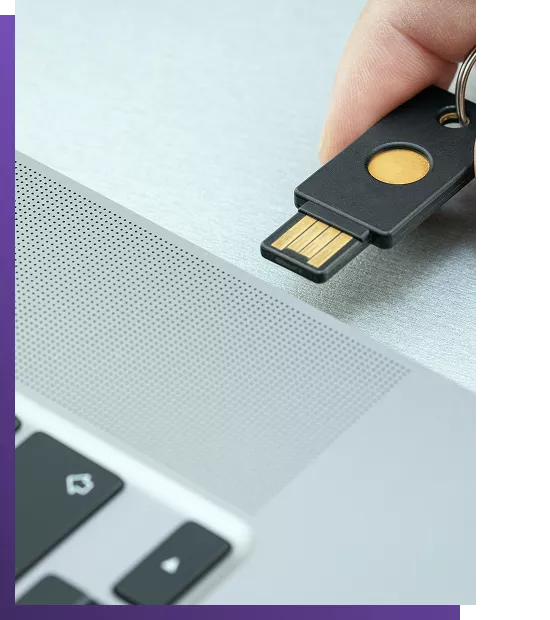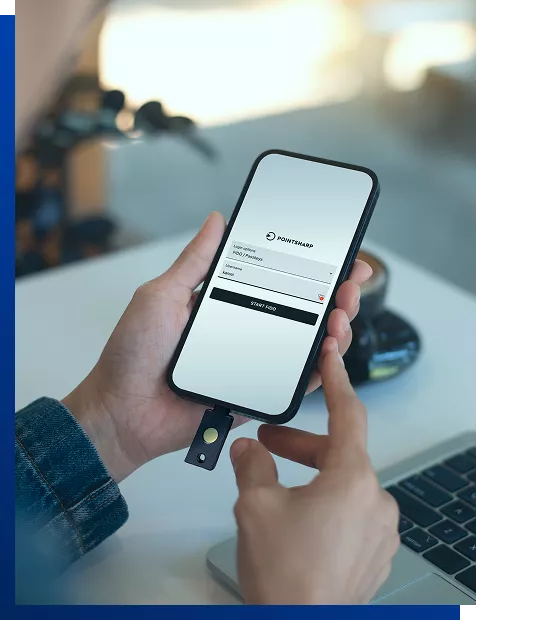The end of the passwords?
Phishing attacks, data leaks, and compromised access data like passwords are not only the weakest but also a very costly aspect of IT security. Yet, they still dominate the daily operations of many companies. Why? Because passwords are easy to implement and everyone knows how to use them, even if they are not very practical or secure.
With FIDO (Fast Identity Online) and passkeys, a standard now exists that not only rethinks security but also greatly improves user-friendliness. In this article, we explain why FIDO-based authentication is essential for a modern access management strategy and how companies can effectively adopt FIDO with Pointsharp.
Why FIDO? Advantages for companies at a glance
The introduction of FIDO not only offers technological benefits but also has a measurable impact on costs, security, and user satisfaction.
Lower IT support costs
- No more password resets
- Significant decrease in helpdesk tickets
- Less expensive security keys can replace giving each employee a phone.
Increased security
- Protection from phishing, credential stuffing, and brute-force attacks
- No passwords are used or stored anywhere, so there are no risks of passwords leaking.
More productivity
- Faster login without entering a password
- The end of password fatigue, which is especially helpful when connecting to multiple services.
- Ideal for hybrid working, works on all devices regardless of location
- Easy login using fingerprint or facial recognition, no training needed.
Data protection & compliance
- Option for full local authentication, with no personal access data stored in the cloud.
- Provides support for regulatory compliance through robust authentication methods without passwords, local data handling, and safeguards against unauthorized access (e.g., GDPR, ISO, NIS2).
Resources Learn more about our solutions, us, and how we can help you.
Support Get help with our products and solutions.





